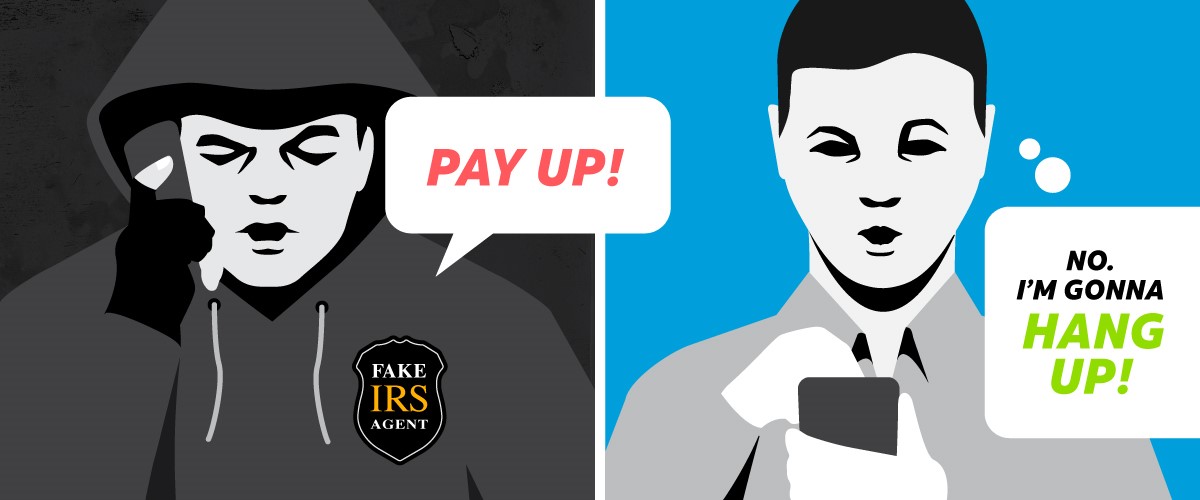The IRS says taxpayers should anticipate delays this filing season, but that doesn’t mean bad guys are waiting to start their annual IRS scams. Be on the lookout for scam artists posing as IRS officials. They’ll try to take advantage of your fears and uncertainty through the tax season. These are strong emotions which can make you an easier target for bad guys. They’ve also expanded beyond the IRS and are claiming to be from other government agencies like the Social Security Administration.
Bad guys can also pose as representatives from a company to fool you. Learn more about social engineering here.
Regardless of their tactics, their goal is the same: to get you to send them money.

HOW IT WORKS
In a common scam, someone calls you and claims to be an IRS agent. They say you owe back taxes and unless you pay immediately, you will be arrested. They can be very convincing and threatening. They say you can settle your debt by sending them a prepaid debit card or gift card, like Amazon or iTunes, or by making a wire transfer.
What To Do
Do not believe them!
Never give these scam artists bank account information, credit card numbers, your Social Security Number or any other sensitive personal information.
The IRS will usually contact you first by mail and give you a chance to dispute the issue. You can read more on the IRS website.
While the IRS is now using collection companies, these companies and the IRS will not threaten you with arrest. The IRS also does not accept gift cards – especially iTunes and Amazon – as payment.
While the tax season is prime season for these scams, they may happen at any time of the year.
For other government benefit scams, federal government agencies and federal employees also don’t ask people to send money for prizes or unpaid loans. They will not ask you to wire money or add money to a prepaid debit card to pay for anything.
What We Are Doing
We are doing our part to help prevent these scams throughout the world when we become aware of them. AT&T will partner with law enforcement both in the United States and overseas in order to protect its customers from large-scale robocalling fraud. Learn more about our robocall blocking efforts and how you can better protect yourself here.
